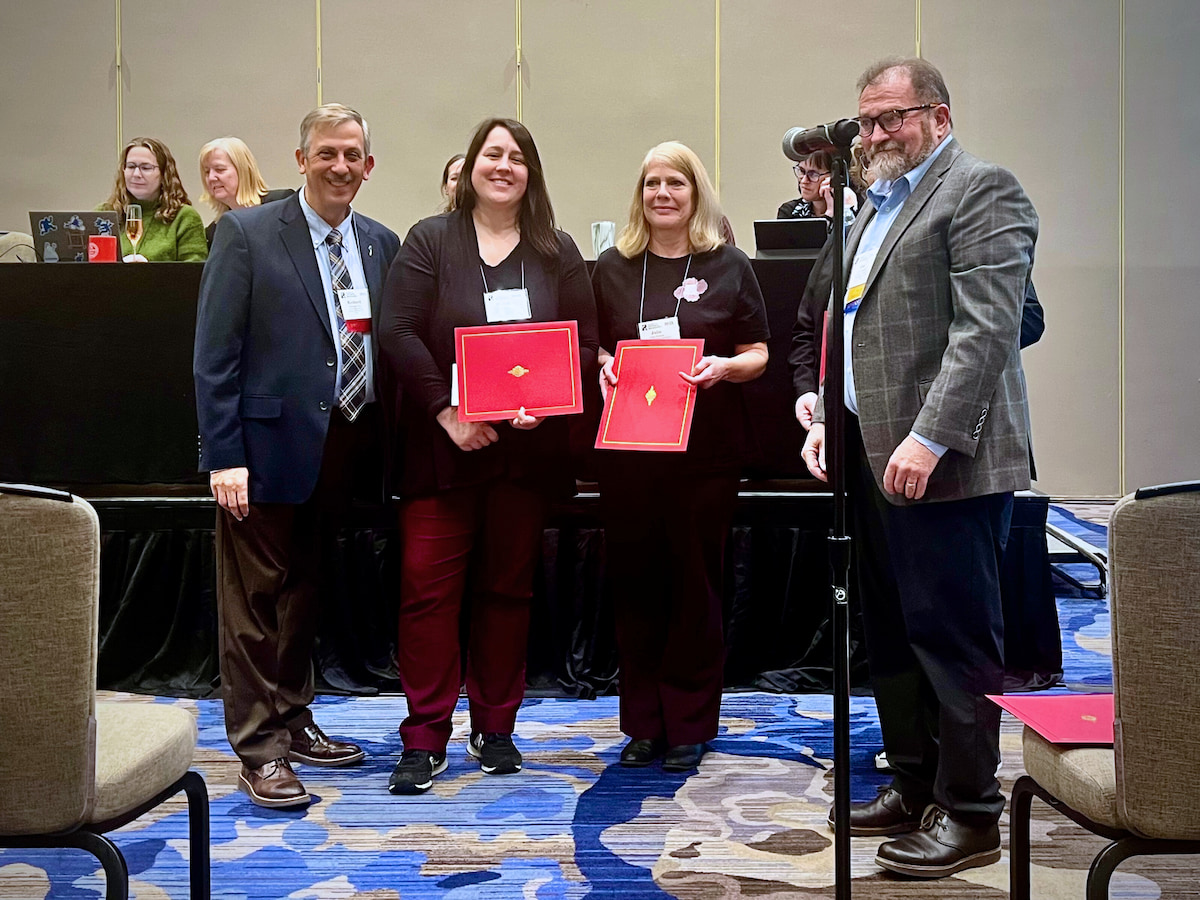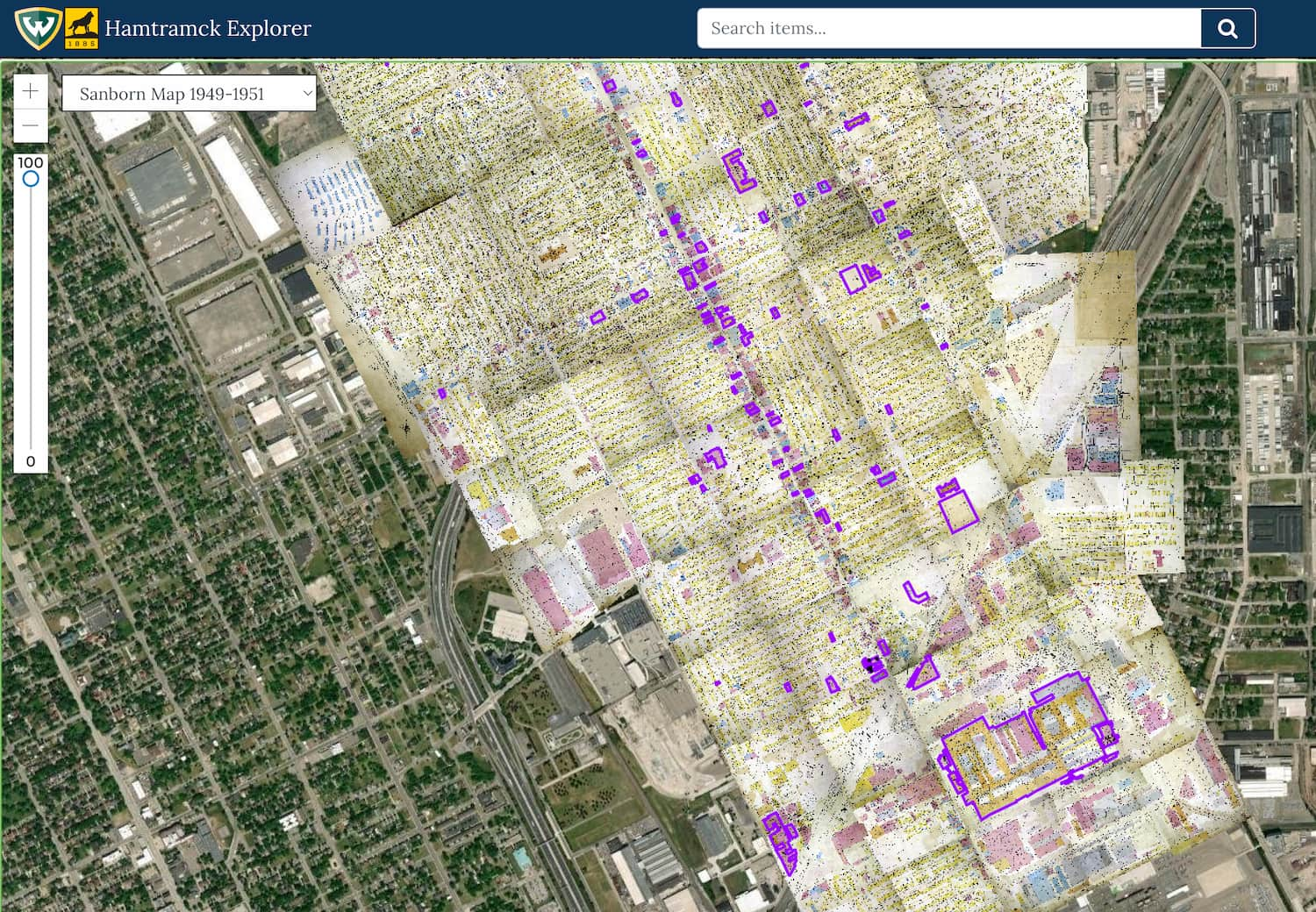Anthropology faculty and students receive competitive NEH funding
Detroit, MI – Wayne State University Anthropology Chair and Professor Krysta Ryzewski and Associate Professor Andrew Newman were each awarded prestigious National Endowment for the Humanities (NEH) grants to fund their original research projects. Additionally, anthropology graduate students Julie Julison, Sarah Pounders, Ana Saenz and Mozelle Bowers have been selected as 2025 fellows of the NEH Community Deep Mapping Institute.

Deep mapping as a community history resource
Ryzewski’s Cultural and Community Resilience grant will fund the expansion of ongoing community-based research in Hamtramck, MI. This work will be conducted in partnership with co-PIs Dan Trepal and Don Lafreniere of Michigan Technological University (Houghton, MI) and the Hamtramck Historical Museum. The team developed the Hamtramck Explorer prototype in 2023 with the assistance of an NEH Research and Development grant.
Hamtramck Historical Museum Board President Joe Kochut reflected on the Explorer’s trajectory, "This project is vitally important to the city because it gives Hamtramckans, past and present, the opportunity to explore the city and its history from a perspective they may never have before. This project has been one of our most important and it's been amazing to watch it grow from just an idea into what it has become.

The new NEH Cultural and Community Resilience funding will facilitate the expansion of the Hamtramck Explorer deep map into a powerful, comprehensive digital atlas and archive. The expansion will involve digitizing the built environment of the entire city across layers of maps from the past 150 years and linking digitized historical archives, oral histories and archaeological objects to these buildings through a robust database called a historic spatial data infrastructure (HSDI). The funding will also allow the team to create a mobile app for the deep map, as well as a story submission feature that will allow the public to submit their own stories about places in Hamtramck.
"We are deeply excited to see this project move forward and to be a part of it, said Greg Kowalski, executive director, of Hamtramck Historical Museum: "Not only will this help define the community of Hamtramck, with its remarkable past, it will also bring attention to the city and the museum."
A Parisian history rooted in anthropology
Newman’s NEH Fellowship grant will expand on his decades-long research in France and support the research and writing of a new book, "Empire’s Garden: Anthropology, race-making, and visual culture in Paris, 1877-1908." The project is at once a history of anthropology, a history of Paris and an analysis of how colonial ways of seeing the world continue to shape our vision in the present day.
NEH Fellowship grants are highly competitive awards given to support writing projects by humanities scholars. Newman’s book tells the stories of indigenous people from the Americas, Africa and Asia who traveled to Paris in the late 1800s to be featured in live ethnographic exhibitions. It focuses on their relationship with the Parisian public, as well as anthropologists of the era and it traces the importance of these "ethnographic shows" to the emergence of anthropology. The book also examines the legacy of ethnographic exhibitions for present-day ideas of race and human difference and the continuing influence of these spectacles on the identity of anthropology as a discipline. The project is based on archival research in France and Germany that he has been conducting since 2018.
Unearthing the lives of sex workers in historic Detroit
Graduate students Julison, Pounders, Saenz and Bowers are the founders of a Detroit-based collaborative research project called the Femme Beings Collective. The collective’s work is focused on making visible the lives and experiences of women who engaged in sex work within Detroit’s historic red-light district, the Potomac Quarter, during the late 19th and early 20th centuries. In January 2025, the group presented a paper at the Society for Historical Archaeology’s (SHA) annual conference in New Orleans. The SHA recognized their innovative approach to examining sex workers through historical archaeological data by awarding them the conference’s student paper prize.
While preparing their SHA paper, the team applied to be part of the NEH Community Deep Mapping Institute (also co-directed by Ryzewski and her colleagues at Michigan Tech). They were one of nine teams – and the only all-graduate student team – selected from among over 1,000 individual applicants to participate in the yearlong program. The teams were chosen from around the world, representing about 50 individuals (a 2% acceptance rate), 13 different disciplines and four countries. Their NEH fellowship will provide them with the training and resources to create a digital deep map that unites the historical, geospatial and archaeological data they’ve gathered during their research project and visualizes the relationships between Detroit’s Potomac Quarter and the women who inhabited it nearly 150 years ago. The students will be required to attend monthly meetings and participate in a two-week residency in Houghton, MI in July.
"It is wonderful to see how the work our anthropology faculty and graduate students are doing in partnership with local communities and in international locations is receiving national recognition by way of funding support from the NEH, said Ryzewski. "It is a remarkable first for our small department to have three projects supported by NEH funding at the same time!"
Learn more about Ryzewski’s work with the Hamtramck Explorer and keep up with the Femme Beings on their website. To find out more about Newman, visit his faculty profile. Follow @anthroatwayne on Instagram for all the latest news and updates on these projects and more.